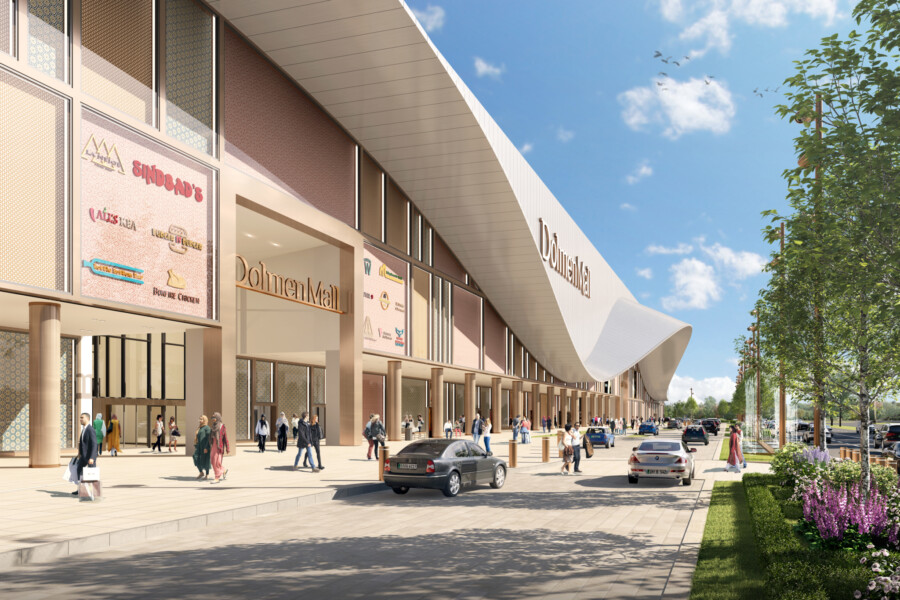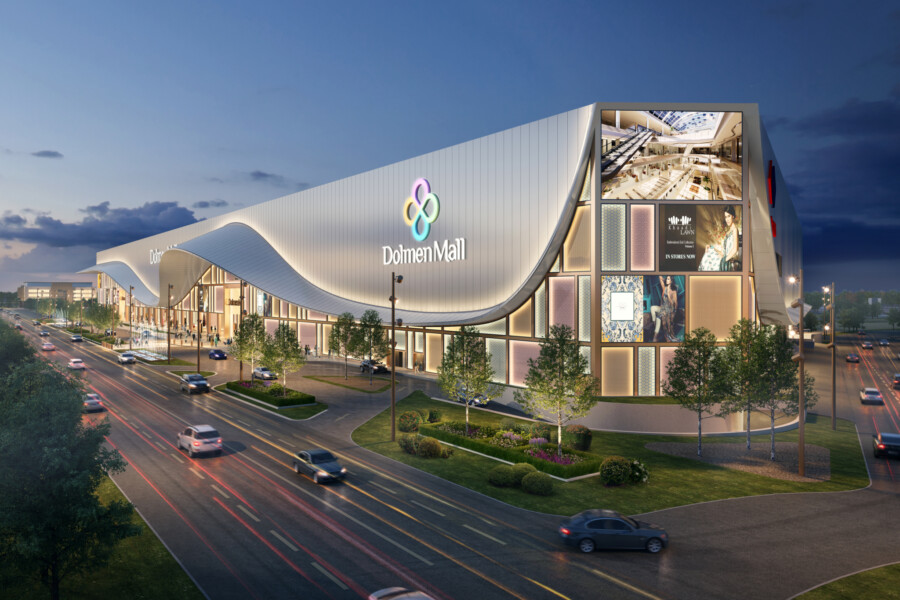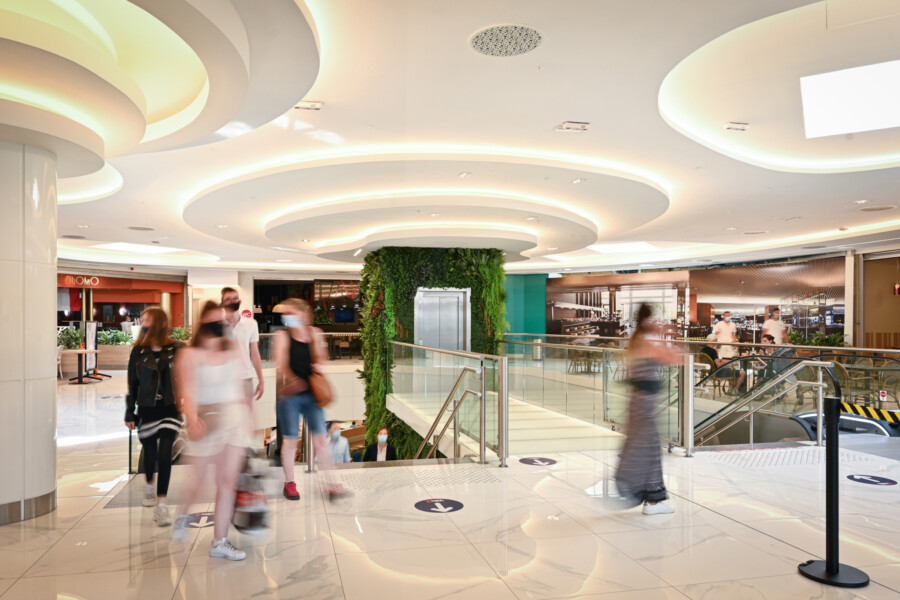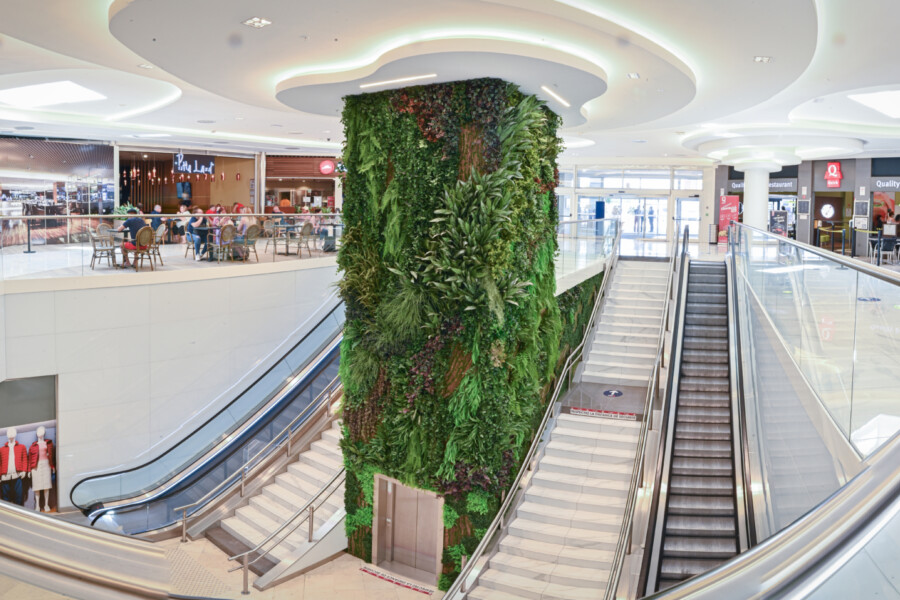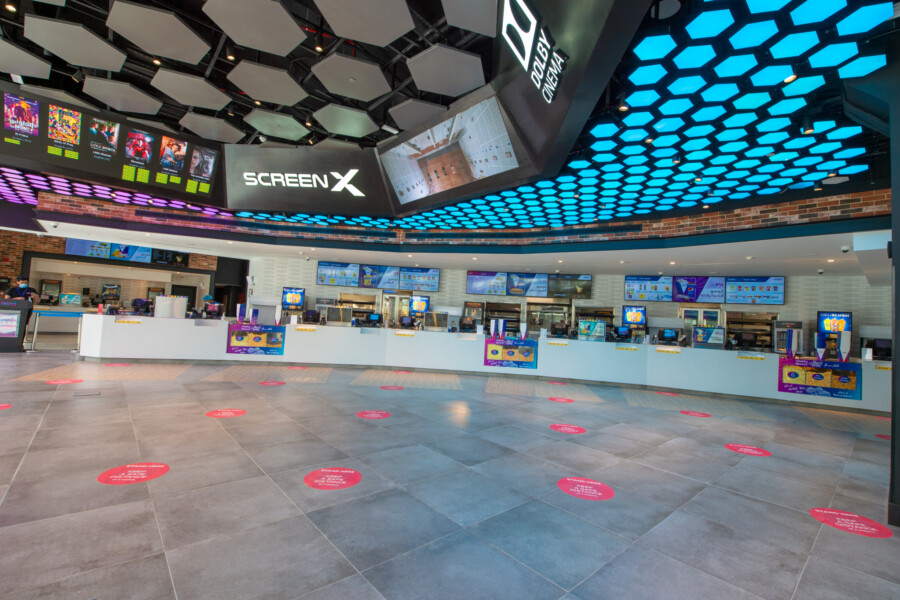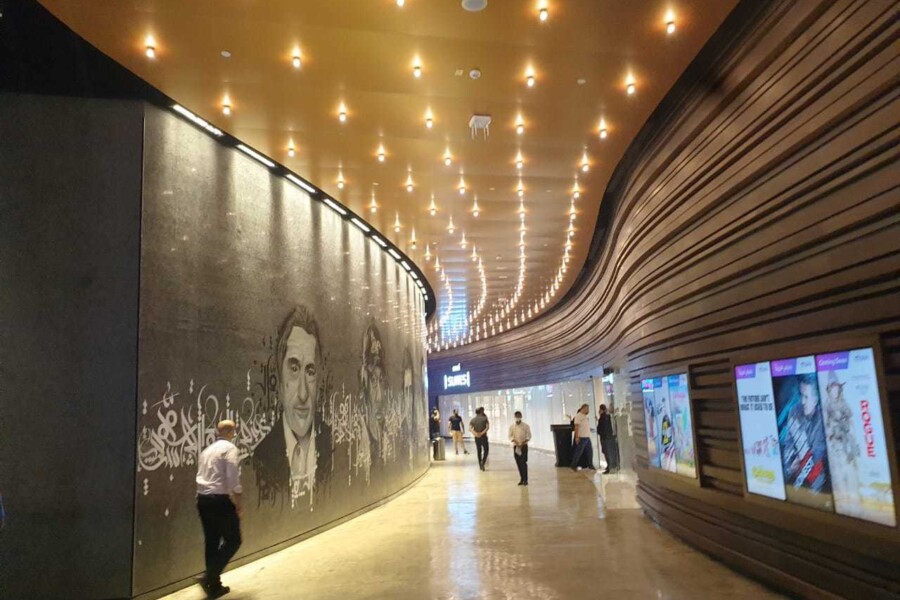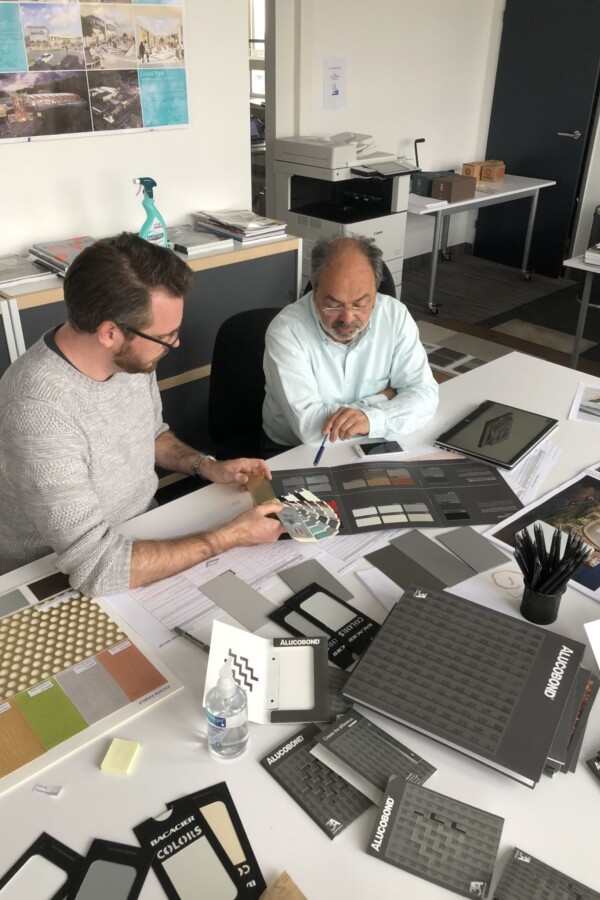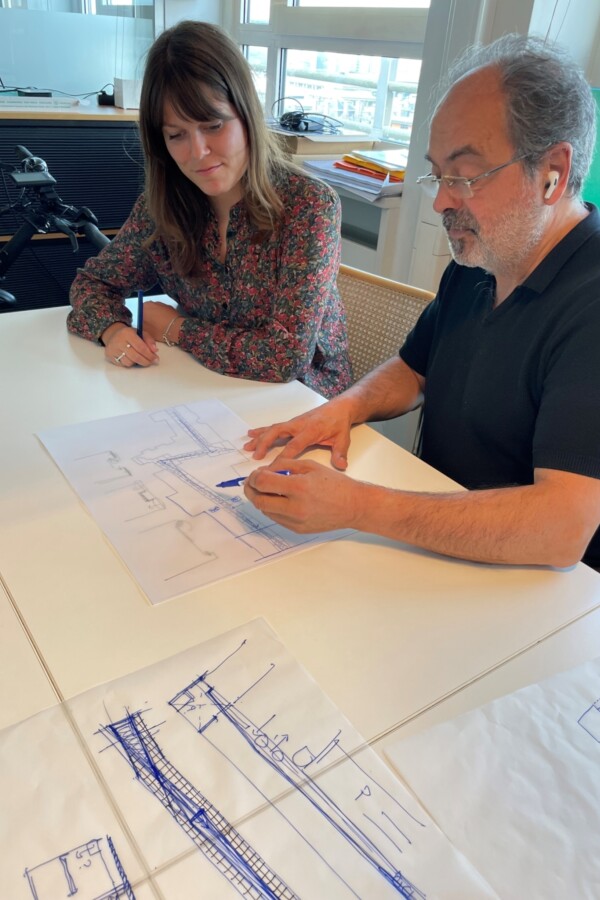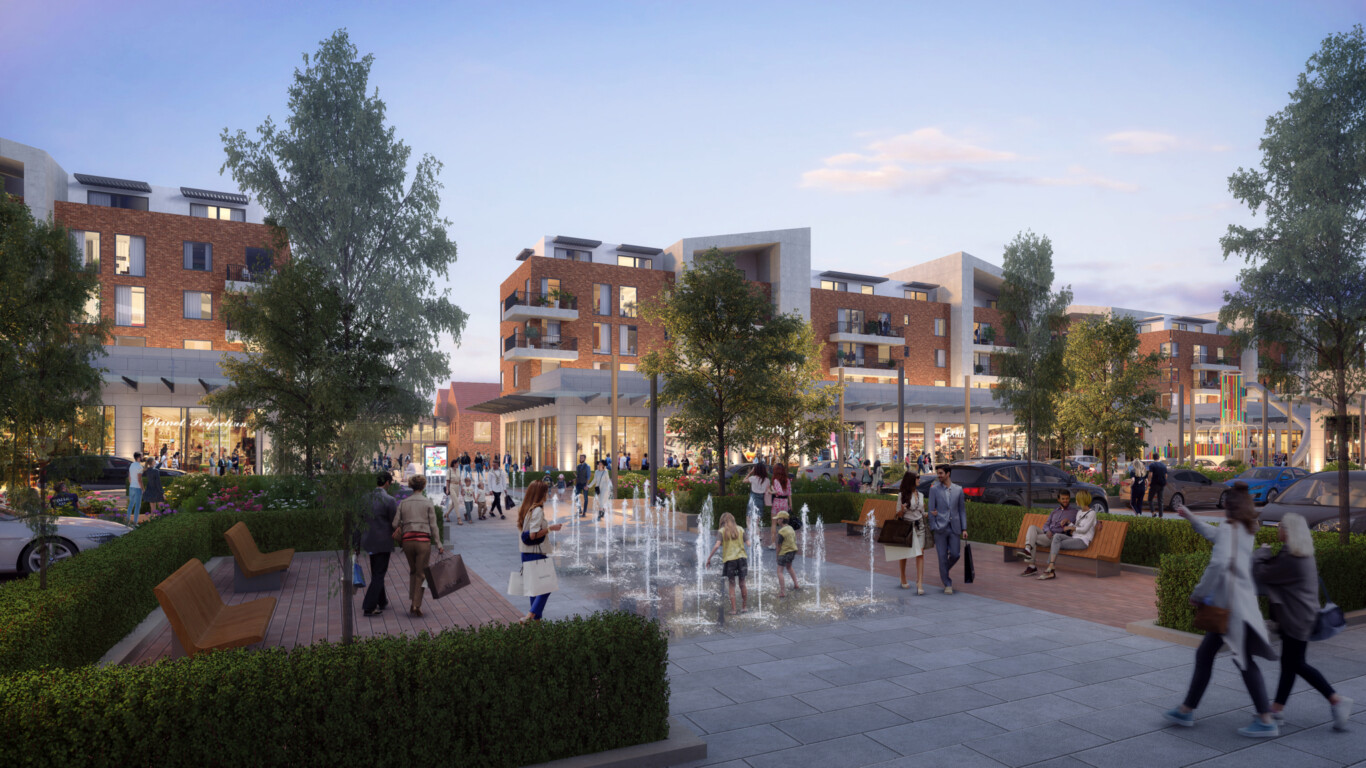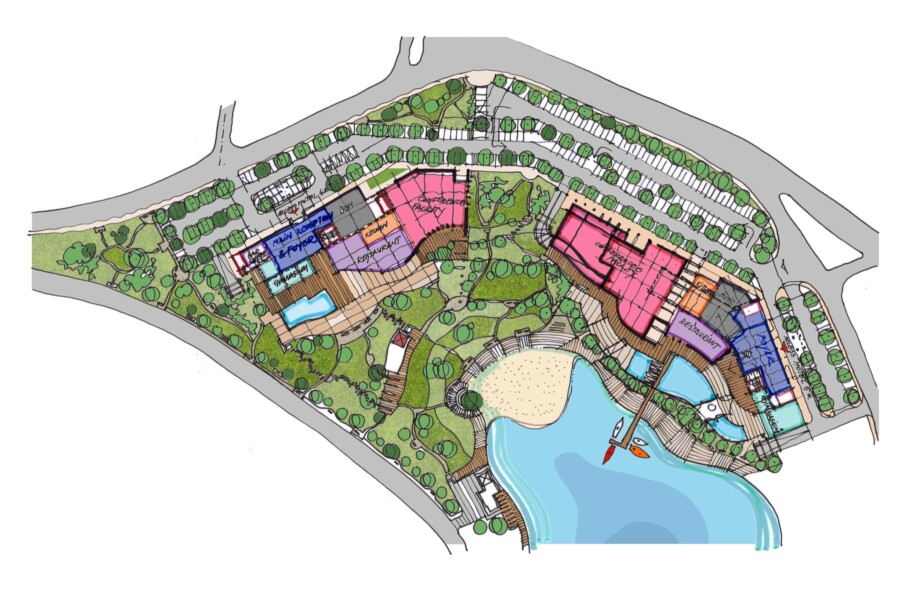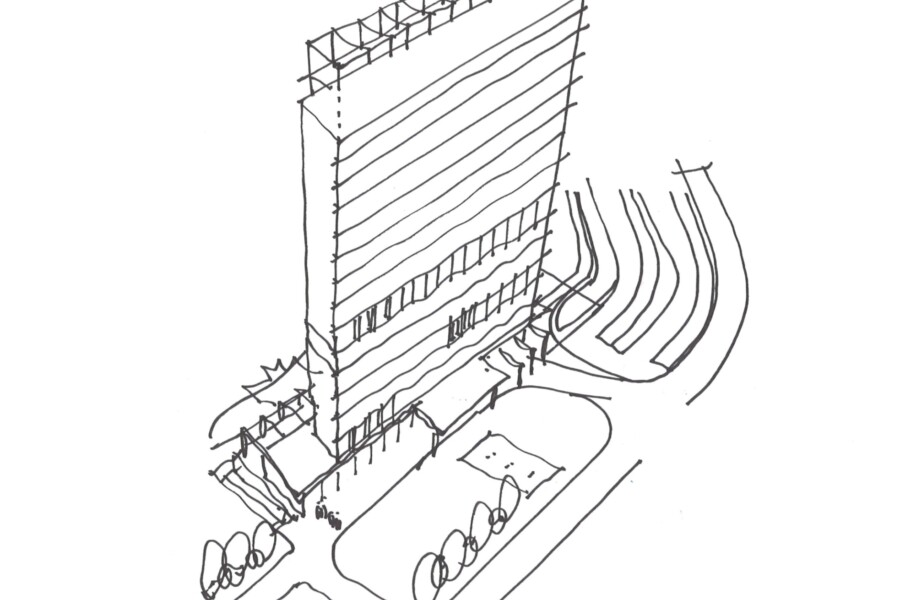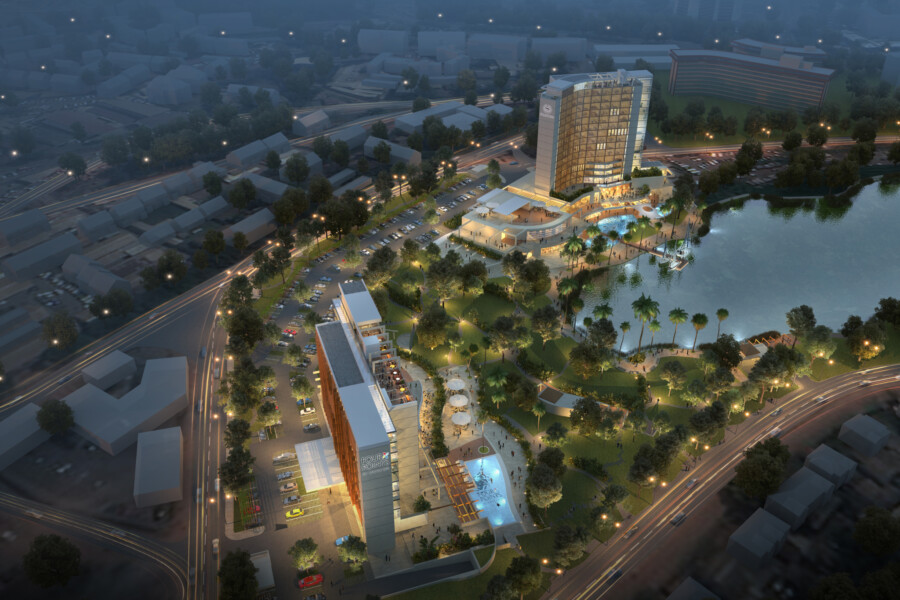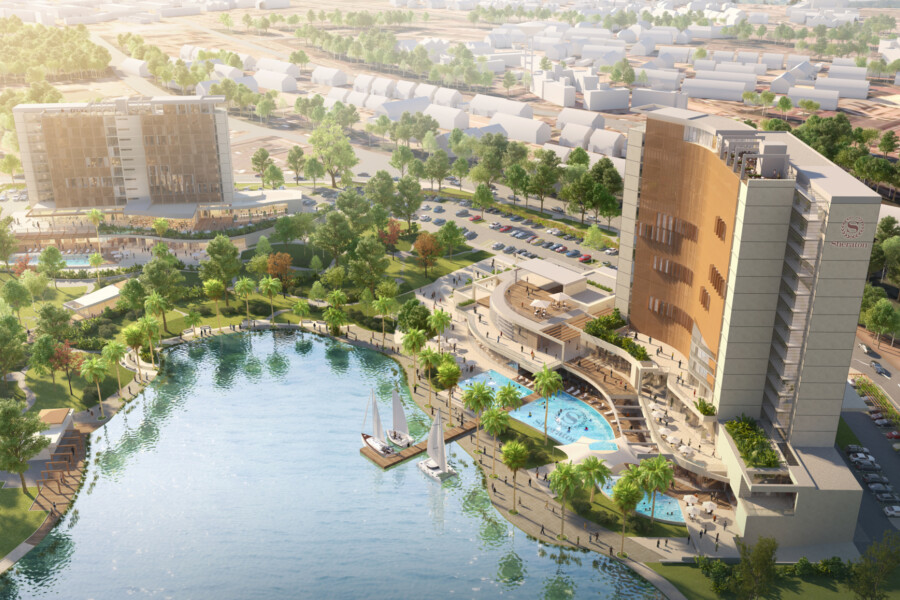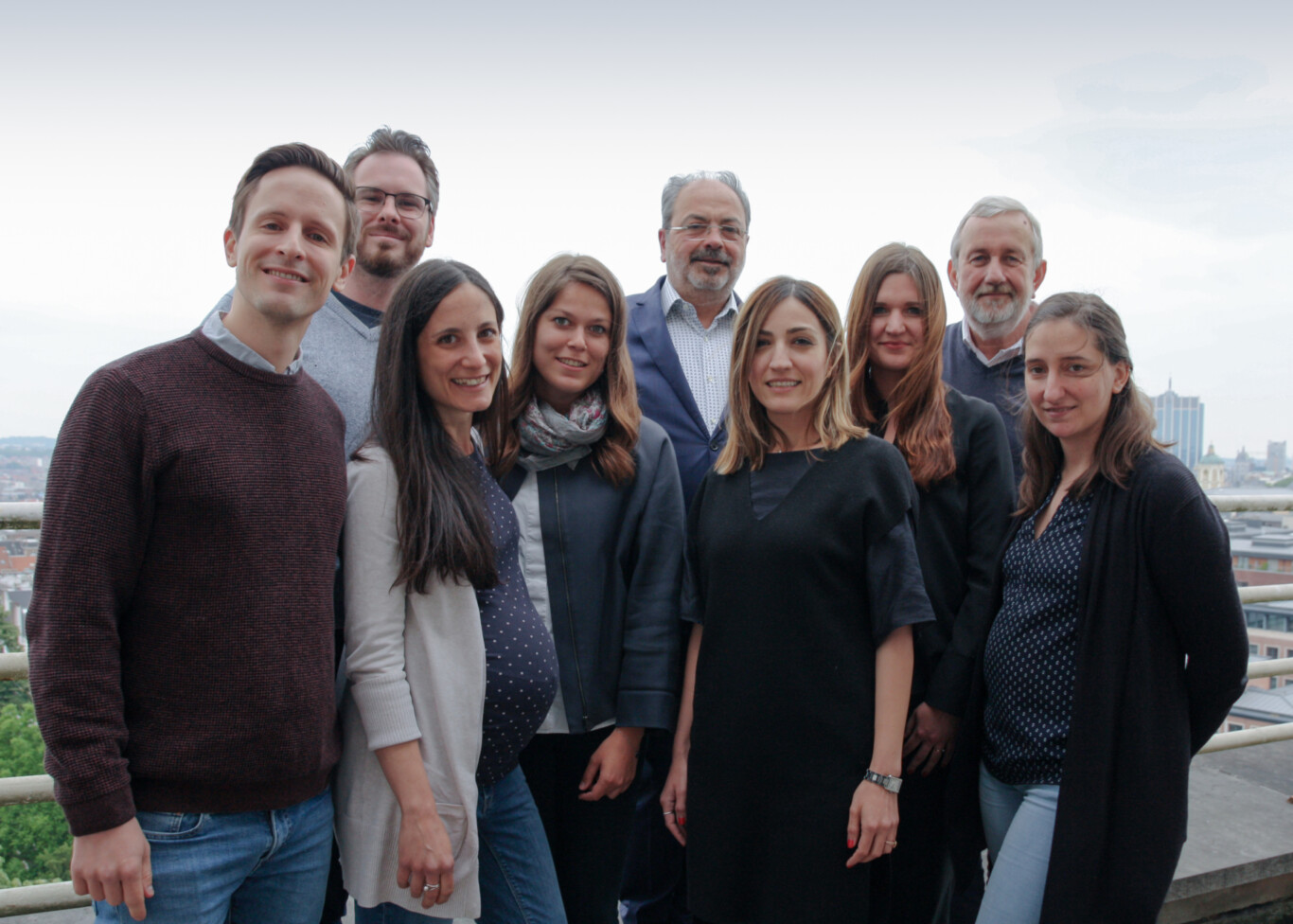
Beyond the pandemic: Our close-knit and multi-talented Brussels studio team
As the world begins the process of emerging from the COVID-19 pandemic, we will be taking a look at how Chapman Taylor’s international studios are responding to changed outlooks, changed market requirements and changed approaches to how we work as they adjust to the “new normal”. Next to be profiled in the series is our Brussels studio, which remained very busy throughout two pandemic lockdown periods, particularly with international projects and cross-studio collaborative work. Director Xavier Grau and Associate Director Mariia Grachova write below about the team spirit which saw them through the lockdown periods, the diverse portfolio of projects being managed by their team and the studio’s post-pandemic growth strategy.
The great benefit of a strong team spirit during lockdown
When the COVID-19 pandemic led to lockdown in Belgium in March 2020, the Brussels studio had been completing the design development package for Dolmen Mall, a 73,000m2 GLA luxury shopping centre in Lahore, Pakistan. We had been working on the project for two years at that point, from the earliest concept stages, although we had also been working on several other projects too, including the Ville 2 shopping centre food court renovation in the Belgian city of Charleroi.
The creative journey over that two-year period had brought everyone in the studio closer together and had instilled a very efficient collaborative working process, particularly through the use of Revit and Microsoft Teams. We had also had some experience already of team members working remotely due to childcare responsibilities. Therefore, when the pandemic arrived and we all had to work from home, we were in an excellent position from which to transition very seamlessly to remote collaboration.
The team spirit forged on the Dolmen Mall project was invaluable during this time and over the subsequent year. We are a relatively small studio of ten people, which helped us to ensure that everyone was ok and knew what to do.
Lockdown began at the end of March 2020, with a temporary return to the studio in the summer followed by another lockdown in October 2020. We issued tender package information for Dolmen Mall during that summer, the completion of which allowed us to release some of the team to work full-time on some our other projects, particularly our collaborative work with other Chapman Taylor studios worldwide. Such collaborations include a large transportation project in India and a masterplanning project in Azerbaijan with the UK studios as well as the Muvi Cinemas rollout across Saudi Arabia with our colleagues in Dubai – we work just as well with them remotely as if they were working in the same room as us.
We have been largely back in the studio since April 2021, but with a much more flexible approach to studio working than prior to the pandemic; some team members prefer to work from home on days when there is no need for in-person collaboration, saving on long commutes.
This Smart Working approach has been very successful; productivity is excellent and people appreciate having a choice in how and where to work. One of the team is currently working from her family home in the Middle East and, apart from the slight time difference, the arrangement is working very well! Where people are working from is much less important to us than their skills, creative abilities and ability to collaborate well.
Busy throughout the pandemic
The lockdown period saw the Belgian construction sector largely come to a standstill; it was hard for companies to maintain a good standard of communication on ongoing projects, many of which came to a complete halt. Therefore, we experienced delays on some of our Belgian projects. Luxembourg did not impose the same level of restrictions as Belgium did, so our mixed-use project there continued on schedule and construction will soon start there.
Luckily for us, we had the advantage of largely focusing on international work at that time, particularly in Africa and the Middle East, so we were able to continue working at a relatively quick pace while other architectural firms struggled. We were even able to build new contacts and explore new work opportunities.
During this time, for example, we won a design and build competition for the extension and refurbishment of Douala Airport in Cameroon. The project seeks to align the airport with the latest airside safety regulations by demolishing two existing piers in favour of one central pier which will accommodate eight planes at a time. The existing arrivals and departures halls will be renovated to make them look brighter and more welcoming, while there will be extensions to the screening area and lounges.
A slight shift in emphasis from potential clients
The nature of the enquiries we received from potential new clients changed a little during the pandemic period. A good example is that we were contacted about the possibility of us working on an industrial/logistics development, which we agreed to do – the first development our studio has worked on in that sector. We saw a resurgence of demand from clients in the airport development sector also, particularly for post-pandemic refurbishment projects.
Refurbishment projects remain a key part of our offer, with new projects and enquiries arriving regularly. We were also approached to create a design concept for a large mixed-use scheme in Belgium, and we are having numerous discussions with clients about repurposing their retail developments with a sustainable mix of uses to provide those built spaces with longevity and vibrancy in an age of digital retail. The wider Chapman Taylor Group experience of creating successful mixed-use developments has been very valuable in this regard.
Throughout the pandemic, we noticed an increase in requests from clients for our BIM services on various projects, although that may have happened anyway. As a result, we conducted several remote team workshops over the pandemic period to further enhance our overall BIM capabilities; our BIM services are greatly appreciated by many of our clients and are often a reason for new clients getting in contact with us.
A small team; a large portfolio
Being the relatively small size that we are, the Brussels studio does not have sector-specific departments; we all work on a wide range of project types as they come to us. Our team members are all extraordinarily adaptable and multi-talented, which is a crucial asset for us, given the strong and varied portfolios we work on at any given time.
In terms of our current projects, for example, we are currently working on an 18,000m2 mixed-use development in Luxembourg, for which we have just submitted building permission documentation. The project takes the form of an attractive external gallery area which provides access to the ground floor retail and the offices at the upper floors. We are also considering concept options for a large mixed-use scheme in Belgium, which we hope to begin developing in the coming months.
As we move past the worst of the pandemic, we are seeking to establish a firm presence in the Benelux residential sector. It is quite difficult to enter the sector successfully and sustainably, particularly in Belgium, so our early residential projects are within broader mixed-use designs; we anticipate this strategy eventually providing us with a strong residential portfolio as a by-product of our mixed-use work.
Meanwhile, we are looking at opportunities to create large urban masterplans in Nigeria, having been approached by several developers in the country. In addition, the African Development Bank has asked us to create a feasibility study in Abidjan, Côte d'Ivoire. We also have two large potential projects in the pipeline in Pakistan.
Our collaborations with other studios in the Chapman Taylor Group continue, including supporting the London studio on a major hospitality project in Saudi Arabia as well as on a large London residential development.
Developing a strategy for post-pandemic growth
The above is a lot of work for our current team. We are so busy that we are now working on an expansion strategy to help us better meet the strong demand for our services. A great aspect of the move to Smart Working is that we are no longer limited by the constraints imposed by the size of our studio; expansion may take the form of working with new colleagues remotely. However, any future growth must be considered and sustainable; we want any new colleagues joining us to be with us for the long term.
However much we expand, one wolf cannot hunt all the rabbits; we will maintain a tight focus as we grow, concentrating more on the Benelux region and its mixed-use and residential sectors, which are the key growth markets here.
We will continue to serve our key existing clients in Pakistan, the Middle East and Africa and to collaborate with our colleagues across the Chapman Taylor network. Although our main target is the Benelux market, we really enjoy being able to work on the type of schemes we have in South Asia and West Africa because it is a rare event for projects of such scale and ambition to come about in the already highly developed north-west of Europe. In West Africa, in particular, there are lots of opportunities as the region develops at pace.
Brussels is a great city to live and work in, with many opportunities across a wide variety of industries and sectors. It is an international city, anchored by the several European Union and NATO headquarters buildings based here. It has beautiful architecture, excellent connections, a wonderful quality of life and a cosmopolitan feel, with a population which hails from all over the world. Despite ours being one of the smaller studios within the Chapman Taylor Group, we are in a wonderful location at the heart of Europe which we believe makes our studio a very attractive place for talented people to want to work at.
When the COVID-19 pandemic led to lockdown in Belgium in March 2020, the Brussels studio had been completing the design development package for Dolmen Mall, a 73,000m2 GLA luxury shopping centre in Lahore, Pakistan. We had been working on the project for two years at that point, from the earliest concept stages, although we had also been working on several other projects too, including the Ville 2 shopping centre food court renovation in the Belgian city of Charleroi.
The creative journey over that two-year period had brought everyone in the studio closer together and had instilled a very efficient collaborative working process, particularly through the use of Revit and Microsoft Teams. We had also had some experience already of team members working remotely due to childcare responsibilities. Therefore, when the pandemic arrived and we all had to work from home, we were in an excellent position from which to transition very seamlessly to remote collaboration.
The team spirit forged on the Dolmen Mall project was invaluable during this time and over the subsequent year. We are a relatively small studio of ten people, which helped us to ensure that everyone was ok and knew what to do.
Lockdown began at the end of March 2020, with a temporary return to the studio in the summer followed by another lockdown in October 2020. We issued tender package information for Dolmen Mall during that summer, the completion of which allowed us to release some of the team to work full-time on some our other projects, particularly our collaborative work with other Chapman Taylor studios worldwide. Such collaborations include a large transportation project in India and a masterplanning project in Azerbaijan with the UK studios as well as the Muvi Cinemas rollout across Saudi Arabia with our colleagues in Dubai – we work just as well with them remotely as if they were working in the same room as us.
We have been largely back in the studio since April 2021, but with a much more flexible approach to studio working than prior to the pandemic; some team members prefer to work from home on days when there is no need for in-person collaboration, saving on long commutes.
This Smart Working approach has been very successful; productivity is excellent and people appreciate having a choice in how and where to work. One of the team is currently working from her family home in the Middle East and, apart from the slight time difference, the arrangement is working very well! Where people are working from is much less important to us than their skills, creative abilities and ability to collaborate well.
Busy throughout the pandemic
The lockdown period saw the Belgian construction sector largely come to a standstill; it was hard for companies to maintain a good standard of communication on ongoing projects, many of which came to a complete halt. Therefore, we experienced delays on some of our Belgian projects. Luxembourg did not impose the same level of restrictions as Belgium did, so our mixed-use project there continued on schedule and construction will soon start there.
Luckily for us, we had the advantage of largely focusing on international work at that time, particularly in Africa and the Middle East, so we were able to continue working at a relatively quick pace while other architectural firms struggled. We were even able to build new contacts and explore new work opportunities.
During this time, for example, we won a design and build competition for the extension and refurbishment of Douala Airport in Cameroon. The project seeks to align the airport with the latest airside safety regulations by demolishing two existing piers in favour of one central pier which will accommodate eight planes at a time. The existing arrivals and departures halls will be renovated to make them look brighter and more welcoming, while there will be extensions to the screening area and lounges.
A slight shift in emphasis from potential clients
The nature of the enquiries we received from potential new clients changed a little during the pandemic period. A good example is that we were contacted about the possibility of us working on an industrial/logistics development, which we agreed to do – the first development our studio has worked on in that sector. We saw a resurgence of demand from clients in the airport development sector also, particularly for post-pandemic refurbishment projects.
Refurbishment projects remain a key part of our offer, with new projects and enquiries arriving regularly. We were also approached to create a design concept for a large mixed-use scheme in Belgium, and we are having numerous discussions with clients about repurposing their retail developments with a sustainable mix of uses to provide those built spaces with longevity and vibrancy in an age of digital retail. The wider Chapman Taylor Group experience of creating successful mixed-use developments has been very valuable in this regard.
Throughout the pandemic, we noticed an increase in requests from clients for our BIM services on various projects, although that may have happened anyway. As a result, we conducted several remote team workshops over the pandemic period to further enhance our overall BIM capabilities; our BIM services are greatly appreciated by many of our clients and are often a reason for new clients getting in contact with us.
Domen Mall Section in BIM
A small team; a large portfolio
Being the relatively small size that we are, the Brussels studio does not have sector-specific departments; we all work on a wide range of project types as they come to us. Our team members are all extraordinarily adaptable and multi-talented, which is a crucial asset for us, given the strong and varied portfolios we work on at any given time.
In terms of our current projects, for example, we are currently working on an 18,000m2 mixed-use development in Luxembourg, for which we have just submitted building permission documentation. The project takes the form of an attractive external gallery area which provides access to the ground floor retail and the offices at the upper floors. We are also considering concept options for a large mixed-use scheme in Belgium, which we hope to begin developing in the coming months.
As we move past the worst of the pandemic, we are seeking to establish a firm presence in the Benelux residential sector. It is quite difficult to enter the sector successfully and sustainably, particularly in Belgium, so our early residential projects are within broader mixed-use designs; we anticipate this strategy eventually providing us with a strong residential portfolio as a by-product of our mixed-use work.
Meanwhile, we are looking at opportunities to create large urban masterplans in Nigeria, having been approached by several developers in the country. In addition, the African Development Bank has asked us to create a feasibility study in Abidjan, Côte d'Ivoire. We also have two large potential projects in the pipeline in Pakistan.
Our collaborations with other studios in the Chapman Taylor Group continue, including supporting the London studio on a major hospitality project in Saudi Arabia as well as on a large London residential development.
Developing a strategy for post-pandemic growth
The above is a lot of work for our current team. We are so busy that we are now working on an expansion strategy to help us better meet the strong demand for our services. A great aspect of the move to Smart Working is that we are no longer limited by the constraints imposed by the size of our studio; expansion may take the form of working with new colleagues remotely. However, any future growth must be considered and sustainable; we want any new colleagues joining us to be with us for the long term.
However much we expand, one wolf cannot hunt all the rabbits; we will maintain a tight focus as we grow, concentrating more on the Benelux region and its mixed-use and residential sectors, which are the key growth markets here.
We will continue to serve our key existing clients in Pakistan, the Middle East and Africa and to collaborate with our colleagues across the Chapman Taylor network. Although our main target is the Benelux market, we really enjoy being able to work on the type of schemes we have in South Asia and West Africa because it is a rare event for projects of such scale and ambition to come about in the already highly developed north-west of Europe. In West Africa, in particular, there are lots of opportunities as the region develops at pace.
Brussels is a great city to live and work in, with many opportunities across a wide variety of industries and sectors. It is an international city, anchored by the several European Union and NATO headquarters buildings based here. It has beautiful architecture, excellent connections, a wonderful quality of life and a cosmopolitan feel, with a population which hails from all over the world. Despite ours being one of the smaller studios within the Chapman Taylor Group, we are in a wonderful location at the heart of Europe which we believe makes our studio a very attractive place for talented people to want to work at.
Developing a strategy for post-pandemic growth
The above is a lot of work for our current team. We are so busy that we are now working on an expansion strategy to help us better meet the strong demand for our services. A great aspect of the move to Smart Working is that we are no longer limited by the constraints imposed by the size of our studio; expansion may take the form of working with new colleagues remotely. However, any future growth must be considered and sustainable; we want any new colleagues joining us to be with us for the long term.
However much we expand, one wolf cannot hunt all the rabbits; we will maintain a tight focus as we grow, concentrating more on the Benelux region and its mixed-use and residential sectors, which are the key growth markets here.
We will continue to serve our key existing clients in Pakistan, the Middle East and Africa and to collaborate with our colleagues across the Chapman Taylor network. Although our main target is the Benelux market, we really enjoy being able to work on the type of schemes we have in South Asia and West Africa because it is a rare event for projects of such scale and ambition to come about in the already highly developed north-west of Europe. In West Africa, in particular, there are lots of opportunities as the region develops at pace.
Brussels is a great city to live and work in, with many opportunities across a wide variety of industries and sectors. It is an international city, anchored by the several European Union and NATO headquarters buildings based here. It has beautiful architecture, excellent connections, a wonderful quality of life and a cosmopolitan feel, with a population which hails from all over the world. Despite ours being one of the smaller studios within the Chapman Taylor Group, we are in a wonderful location at the heart of Europe which we believe makes our studio a very attractive place for talented people to want to work at.
